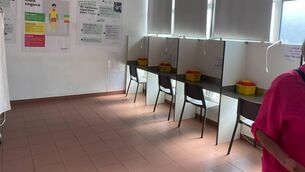‘Pay clubs to drop drinks sponsorship’
Cabinet disagreement over the proposed ban is set to intensify, with Mr Varadkar’s alternative plan putting the onus on the Department of Health — rather than his own budget — to compensate organisations for any sponsorship lost.
Under the scheme, which he said worked effectively in Australia, groups which stopped taking money from the drinks industry would be entitled to a payment from the health department.













